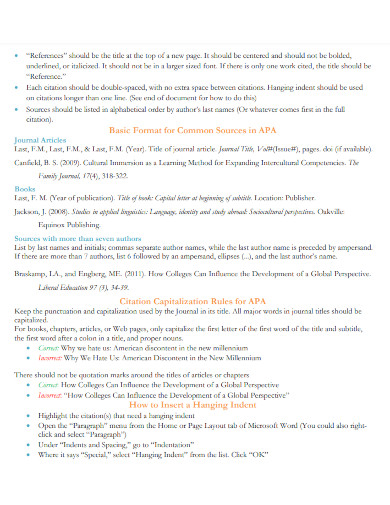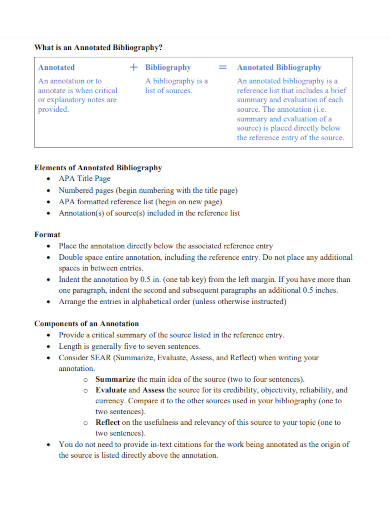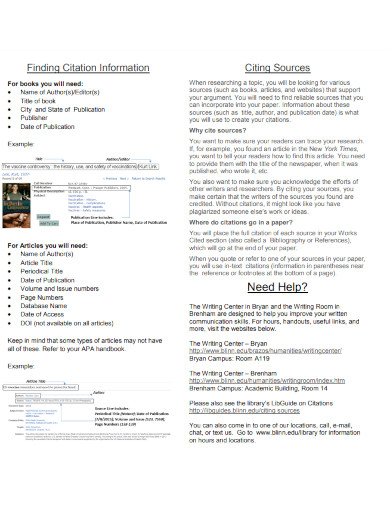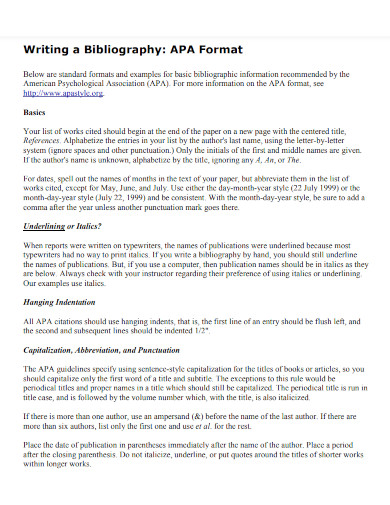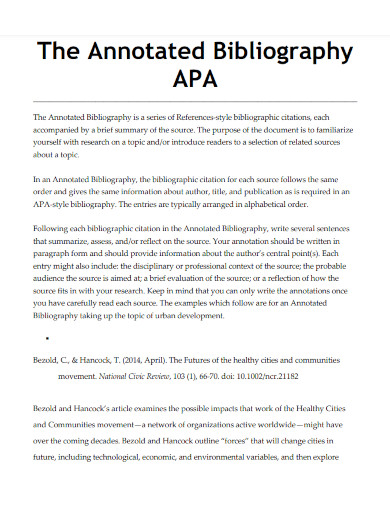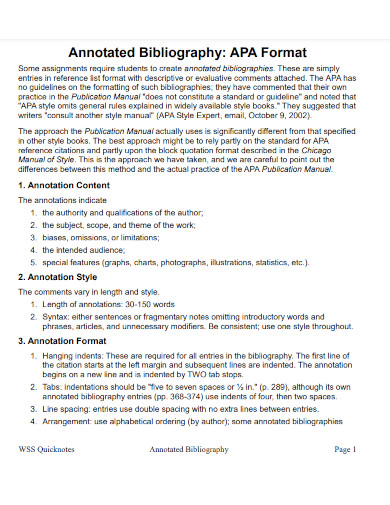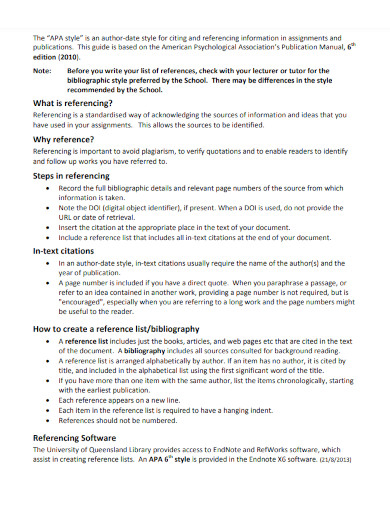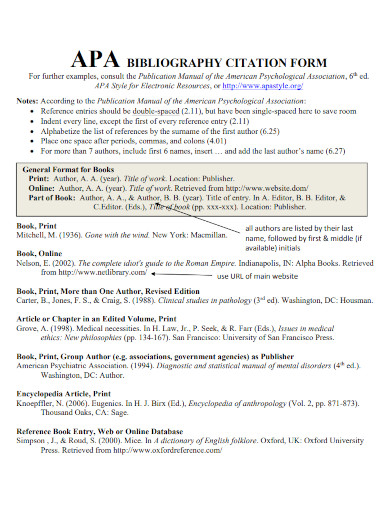7+ APA Bibliography Examples to Download
APA Bibliography, a crucial component of academic writing, serves as a tool to acknowledge and cite the works of other scholars. Its importance lies in providing a standardized format to document sources used in research, thereby ensuring credibility and accountability in scholarly discourse. As a writer, mastering the art of APA citation not only reflects one’s attention to detail but also showcases their ability to integrate and build on existing knowledge. In this sense, APA Bibliography is not just a technical requirement but a cornerstone of academic integrity.
1. APA Bibliography Guidelines
2. APA Annotated Bibliography
3. APA Bibliography Citation Examples
4. Writing a Bibliography Example
5. The Annotated Bibliography APA
6. Annotated Bibliography APA Format
7. References Bibliography APA
8. APA Bibliography Citation Form
What is APA Bibliography?
APA Bibliography is a standardized format for documenting and citing sources used in academic writing. The American Psychological Association (APA) created this format to provide guidelines for scholars, researchers, and students to accurately and consistently reference their sources. See examples of APA Format Reference Page. APA Bibliography includes the author’s name, publication year, the title of the work, and other relevant publication information. It is an essential component of academic writing as it ensures the accuracy and credibility of research, allows readers to verify the information presented, and helps to avoid plagiarism.
How to write an APA Bibliography
It is essential to accurately cite your sources to avoid plagiarism and maintain academic integrity. Here is a general guide on how to write an APA Bibliography:
Step 1: New page
Start with a new page and center the title “References” at the top of the page. List the sources in alphabetical order by the last name of the author(s). If there is no author, use the first significant word of the title as the first element.
Step 2: Indention, spacing, and font.
Double-space the entire list and use hanging indentation, where the first line is flush left, and the subsequent lines are indented 0.5 inches. Use italics for book titles, journal titles, and volume numbers. Use quotation marks for article titles, chapter titles, and web pages.
Step 3: References list
For books, list the author’s last name followed by initials, publication year in parentheses, book title in italics, and publication information (publisher name, location). For journal articles, list the author’s last name followed by initials, publication year in parentheses, article title in quotation marks, journal title in italics, volume number, issue number (in parentheses), and page numbers. For websites, include the author’s name (if available), publication year, the title of the webpage in quotation marks, website name in italics, URL, and the date you accessed the page.
Step 4: Double-check your references
Ensure that all the sources in your references list are in the correct citation format and listed in your bibliography. Check for typos, spelling errors, and missing information, such as publication dates, author names, and page numbers.
FAQs
What are the key components of an APA bibliography?
The key components of an APA bibliography include the author’s name, publication year, title of the work, and other relevant publication information. It should be arranged in alphabetical order, double-spaced, and use hanging indentation.
What are some common mistakes to avoid when writing an APA bibliography?
Common mistakes to avoid when writing an APA bibliography or an APA Style Paper in general, include incorrect capitalization, punctuation errors, incorrect formatting, and omitting relevant publication information such as page numbers or publication dates. It is important to check for accuracy and consistency when formatting your bibliography.
What types of sources are included in an APA bibliography?
An APA bibliography can include a variety of sources, including books, journal articles, websites, reports, and conference proceedings.
In conclusion, APA Bibliography is not merely a set of rules to follow, but a gateway to academic excellence. By carefully citing and referencing sources in accordance with APA guidelines, writers can demonstrate their depth of knowledge, attention to detail, and respect for the work of others. While the technicalities of APA Bibliography may seem daunting at first, mastering this skill can open up new avenues of learning and discovery, as well as foster a greater sense of intellectual curiosity and integrity. So, embrace the challenge of APA Bibliography and let it elevate your writing to new heights!



